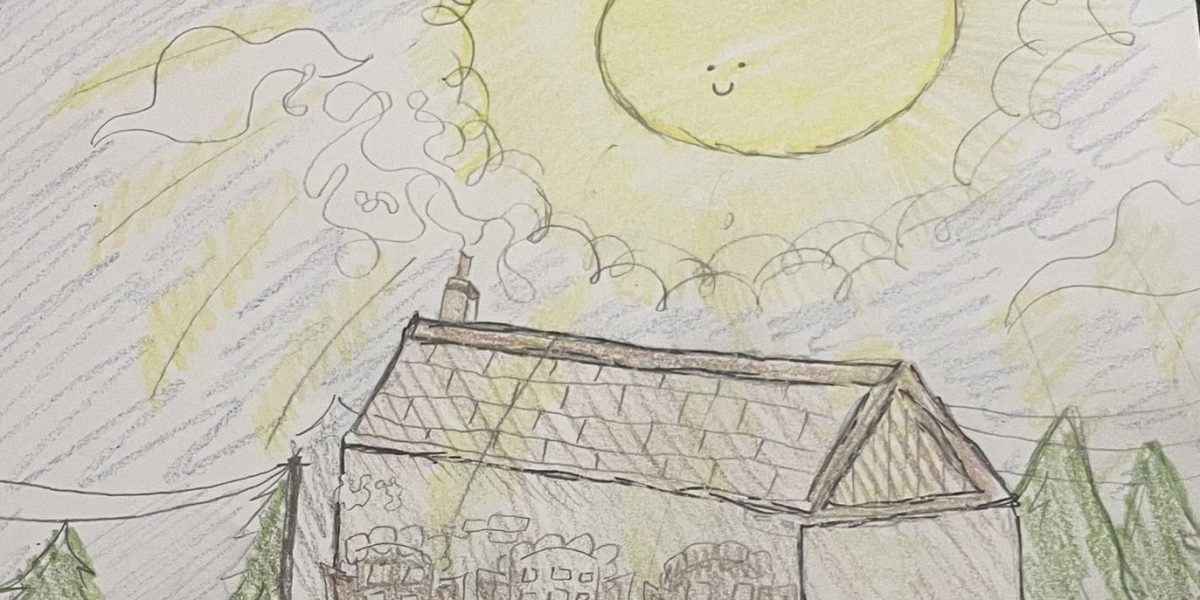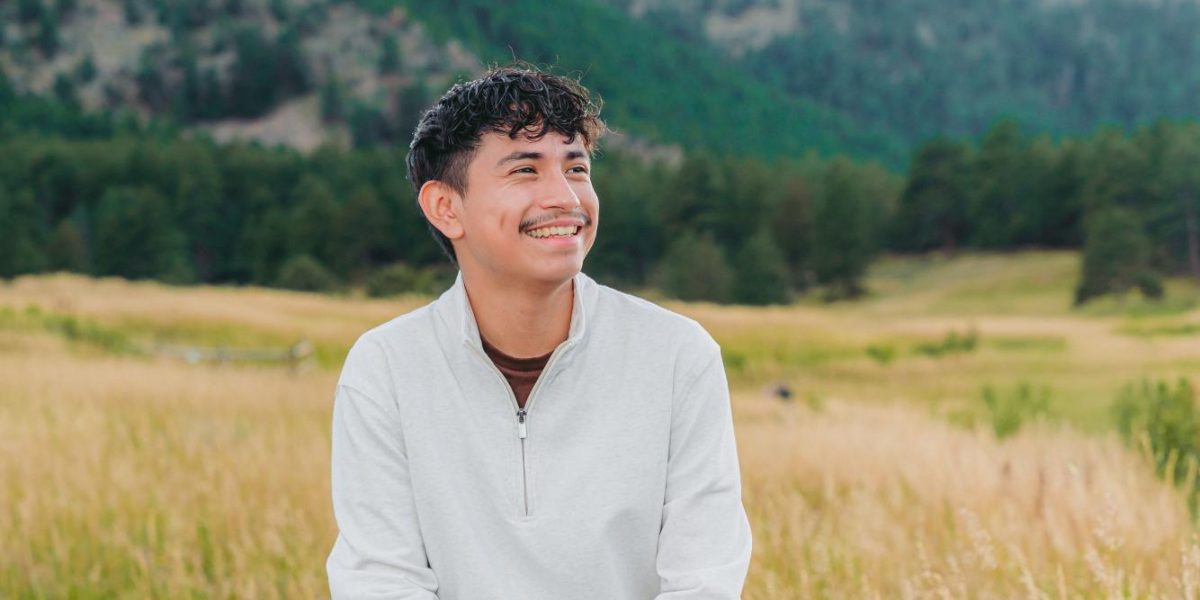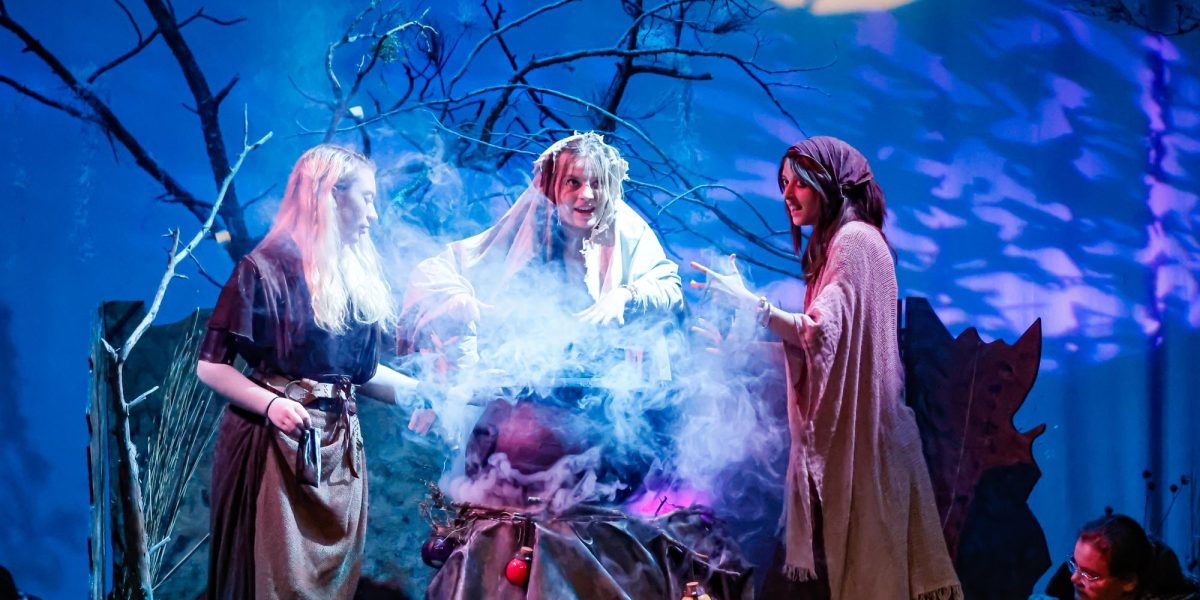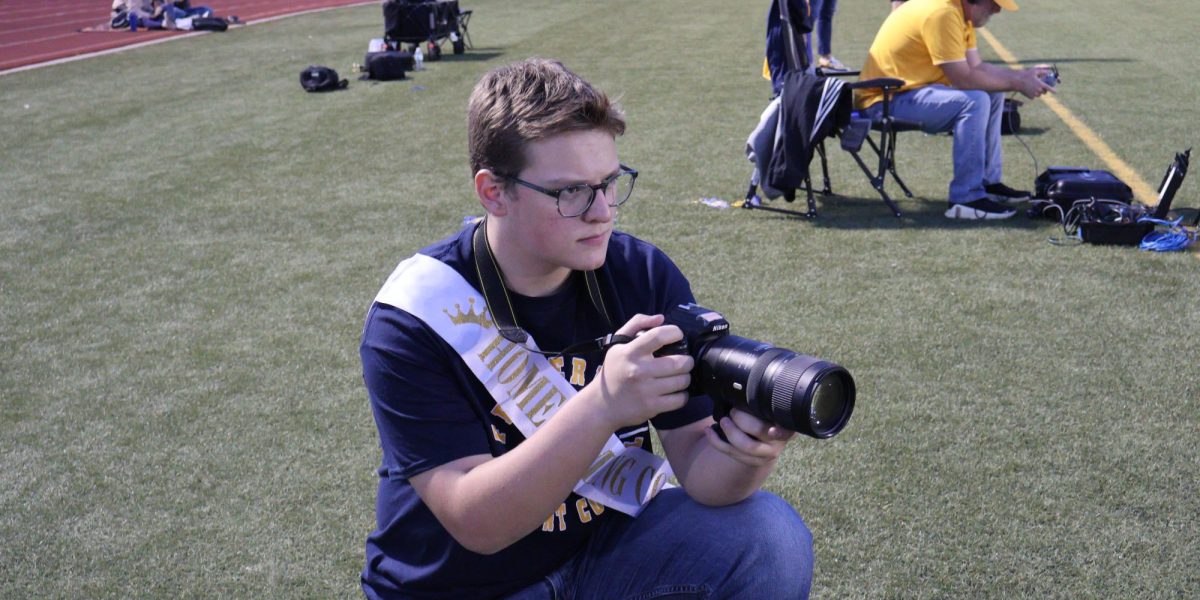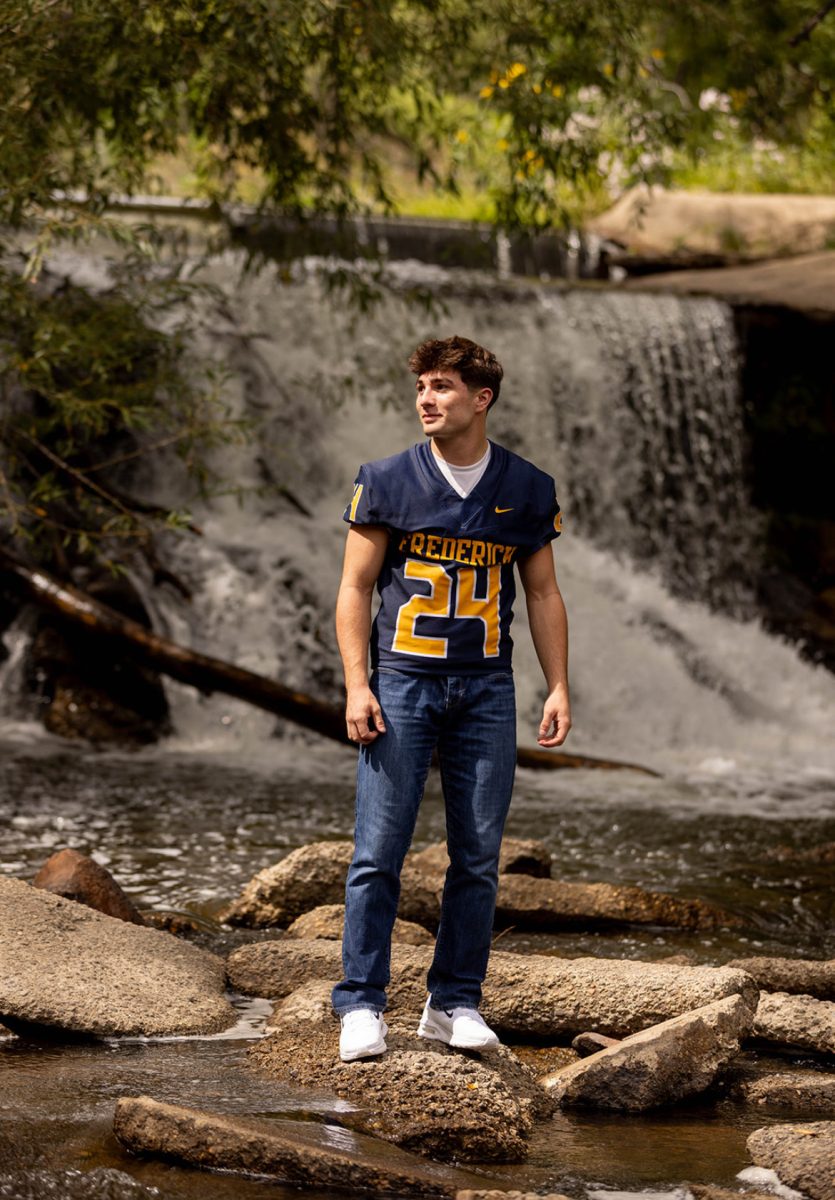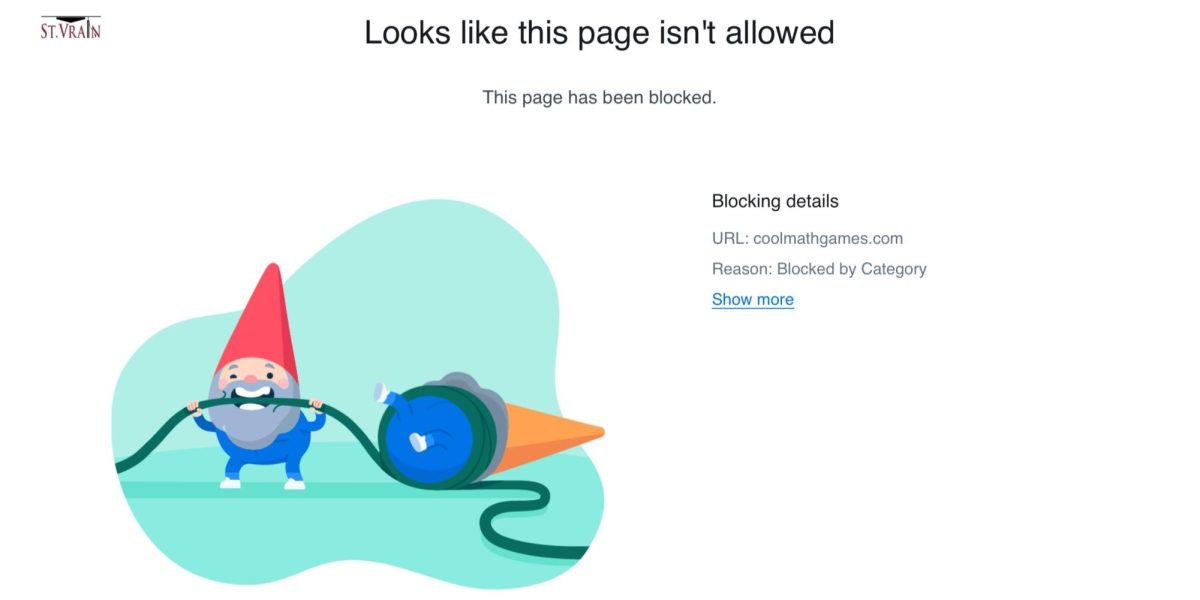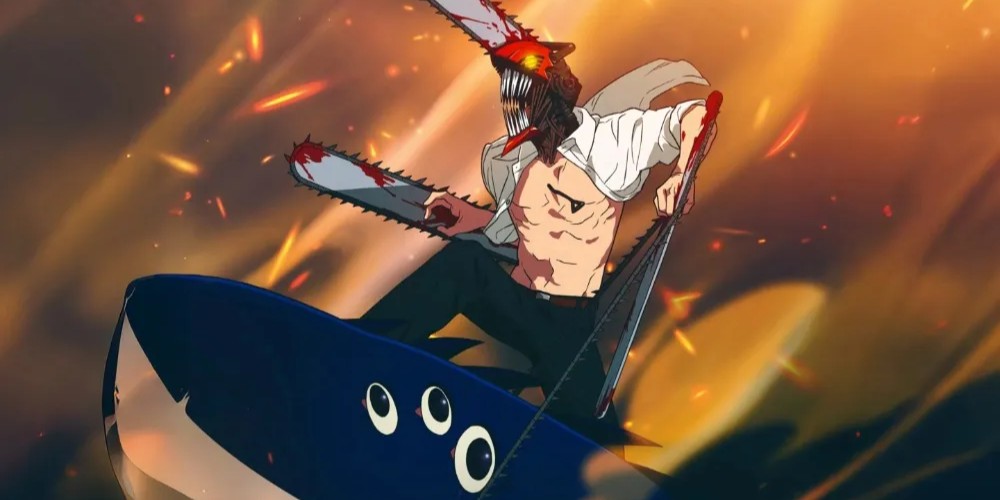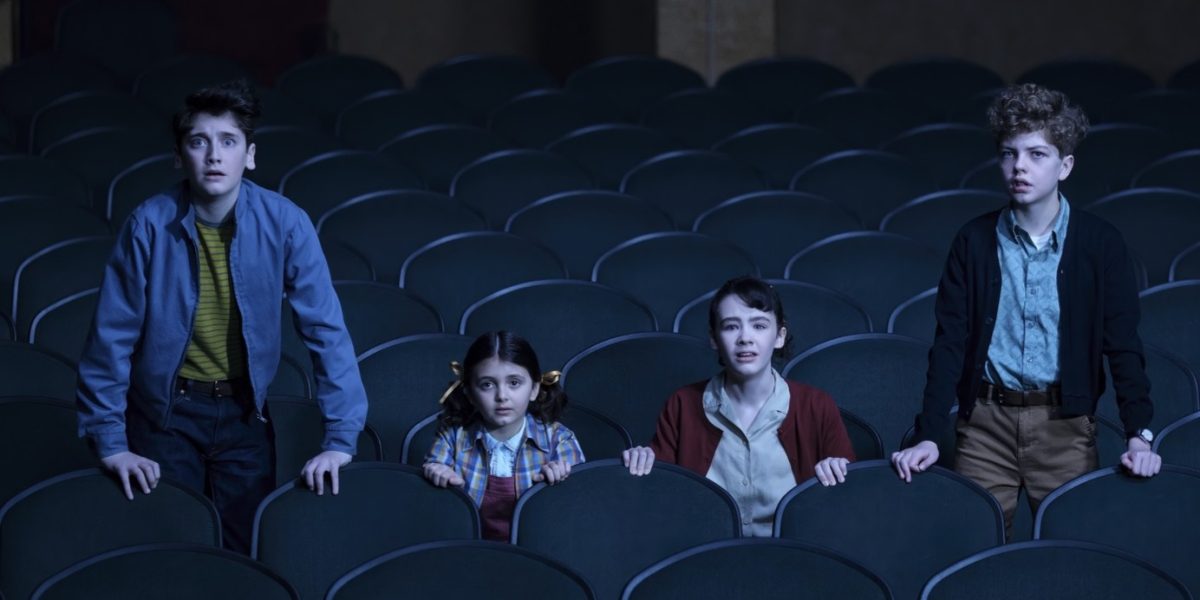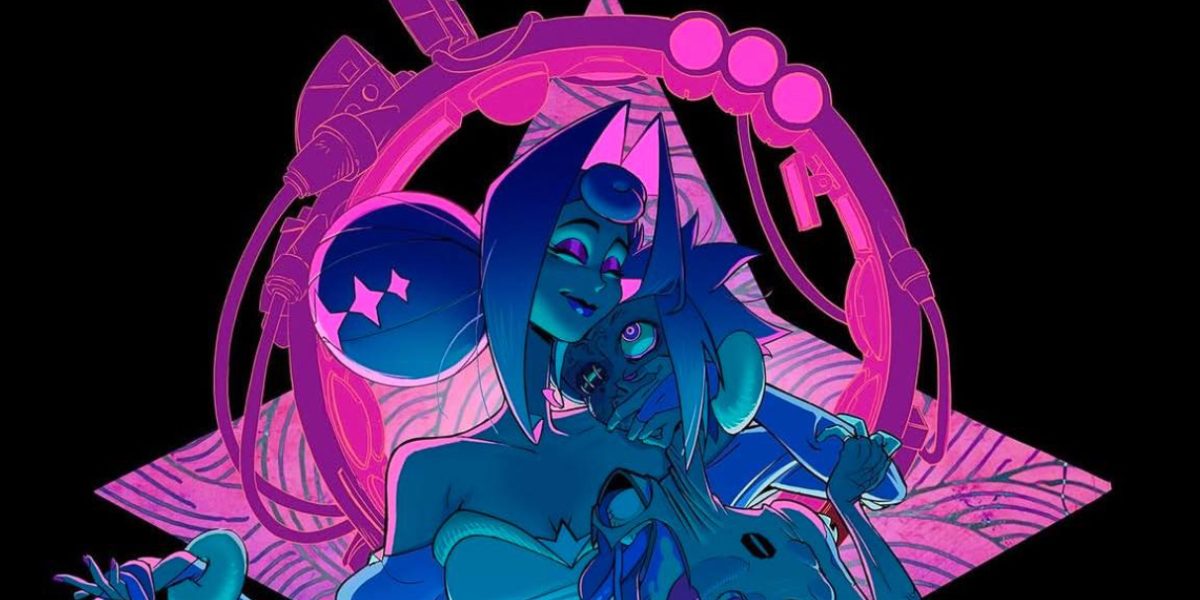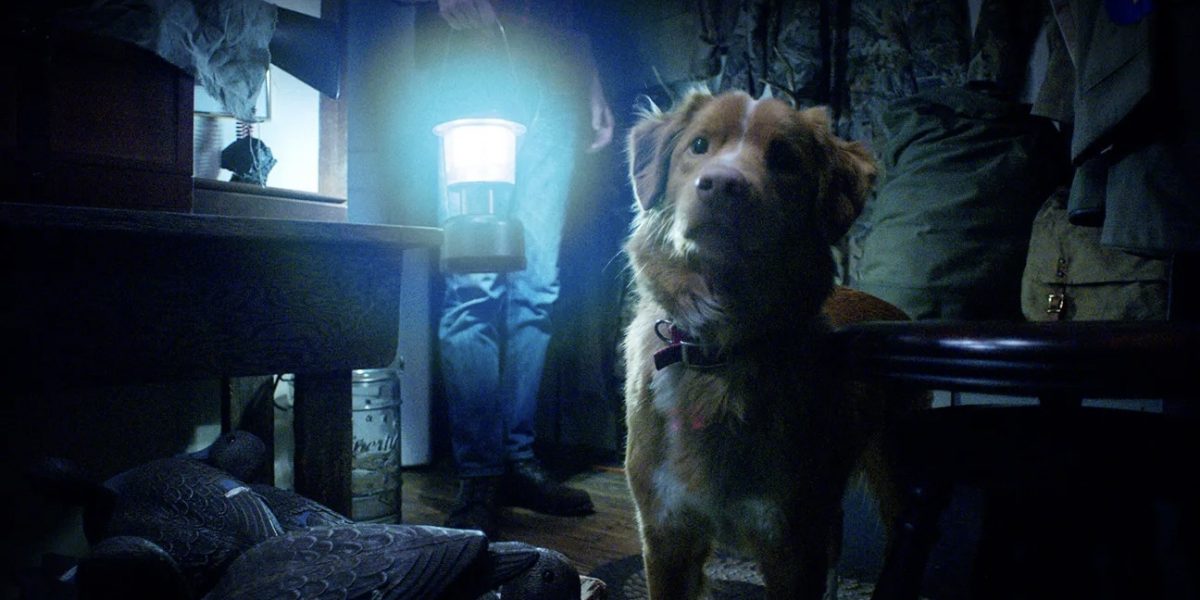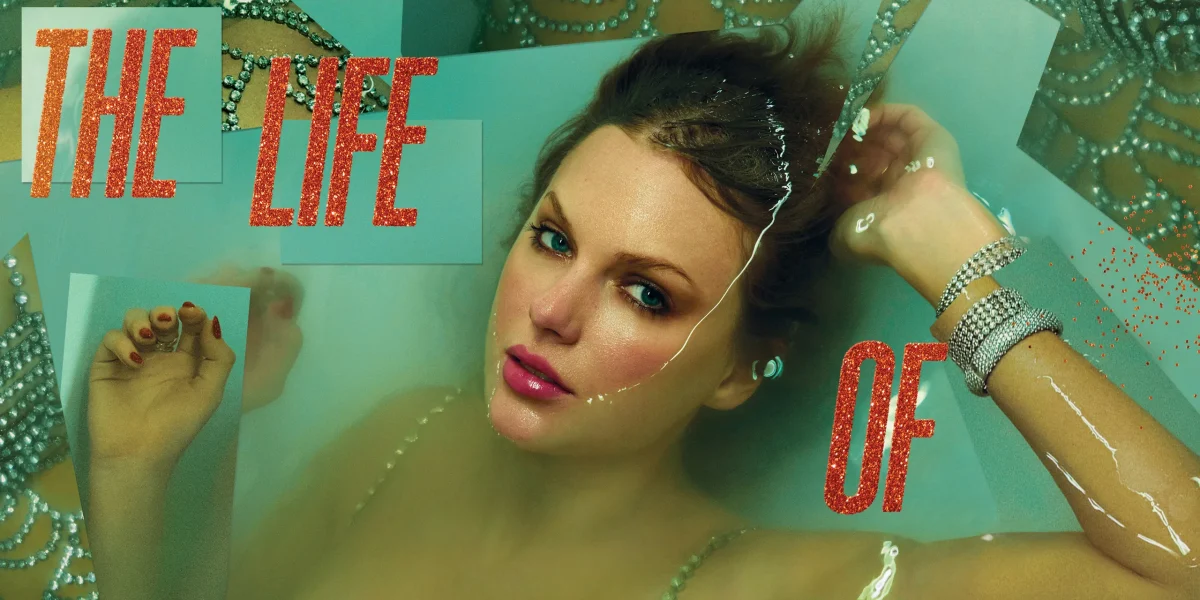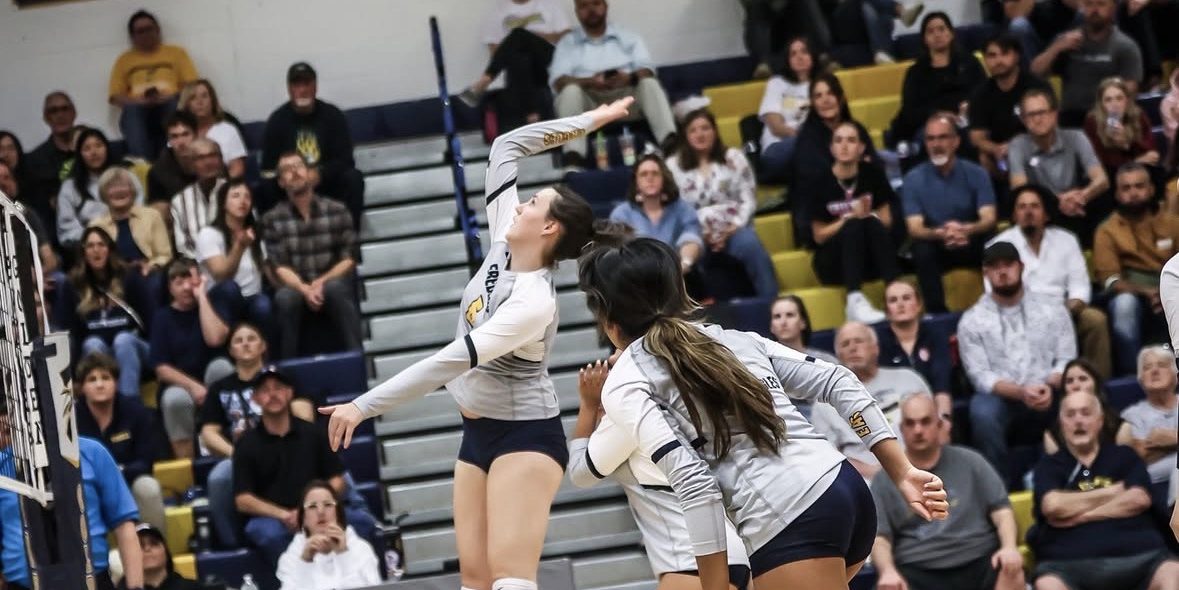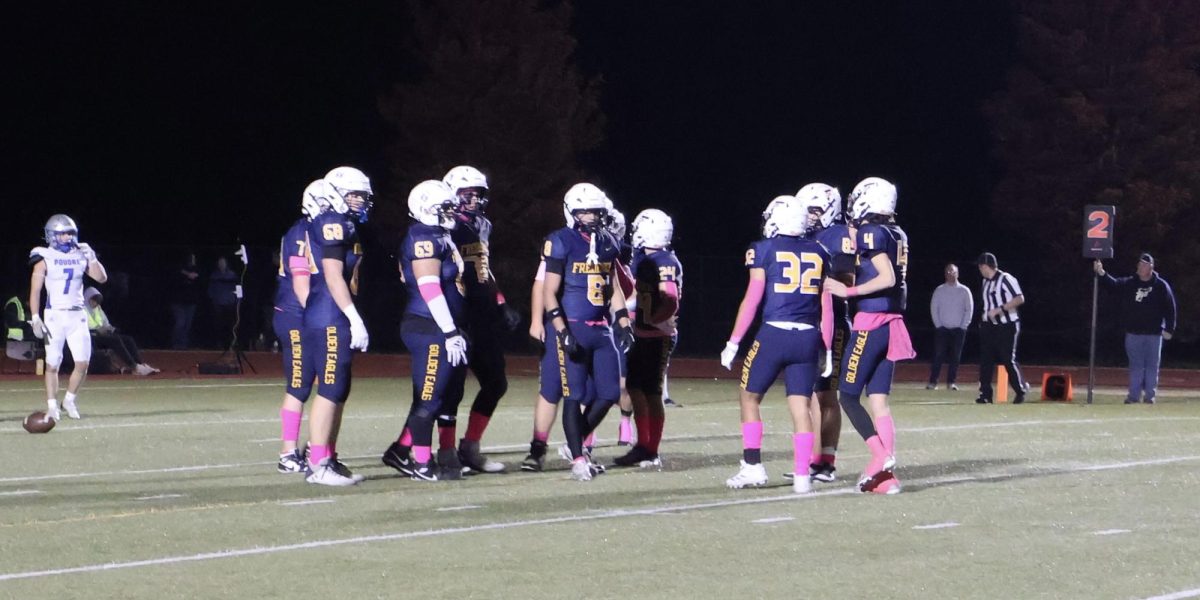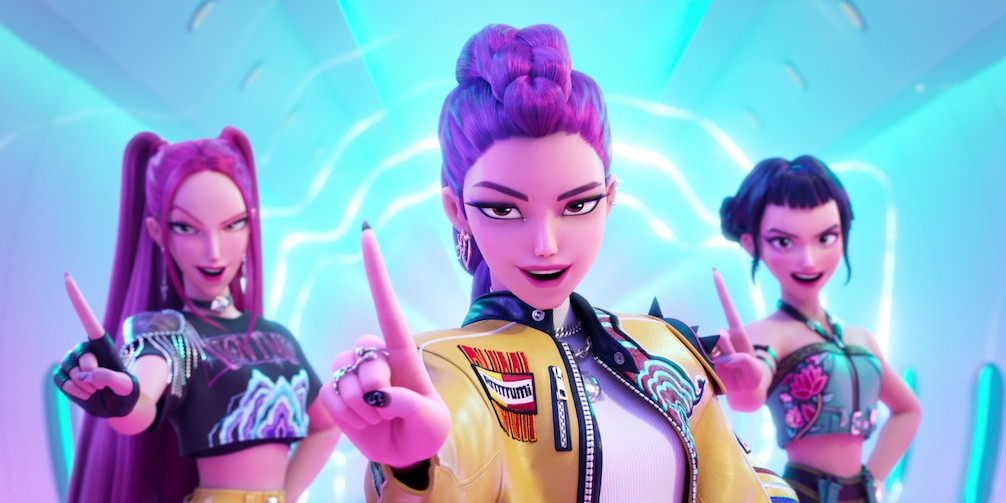As the whole world has heard, K-Pop Demon Hunters is a smash hit. Premiering only on Netflix on June 20th, the animated film centers on a K-pop girl group HUNTR/X fighting against their direct opposite, the Saja Boys, an all-male K-pop group.
The girls—workaholic leader Rumi, tough rebel Mira, and bubbly lyricist Zoey—are not only idol superstars but also trained fighters who protect their fans and all of Korea from demons and their leader Gwi-Ma through powerful music and weapons summoned from a magic called “the honmoon.”
The film familiarizes us most with Rumi, our protagonist of the three girls, who struggles with her identity as a demon hunter when she witnesses a demon have a moment of humanity. Her blind loyalty to the cause comes into question once she realizes the evil is not innate but instead honed from hate.
Rumi, Mira, and Zoey have a platonic, loving friendship; the film establishes their relationship as a ‘found family’ trope. All the girls have their own identity struggles before joining the idol group, their connection helping them cope with the challenges they faced.
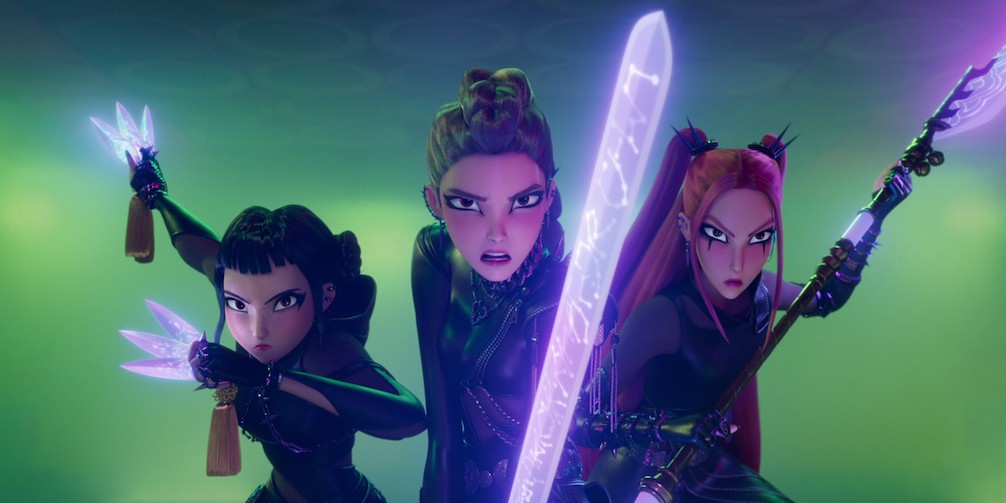
The film surfaces these personal issues in a light that allows the viewers to sympathize with the girls and potentially relate to feeling like an outcast. Their male counterparts aren’t as tight-knit as the girls, but the Saja Boys have an amusing dynamic in their lackadaisical reactions to one another.
Of these rivals, the only one that is fleshed out as a character is Jinu, who becomes a love interest for Rumi. The other boys fit into classic archetypes from idol groups: the young “baby” (named Baby Saja), the mysterious one (Mystery Saja), the sweet heartthrob (Romance Saja), and the hot one with great abs (hilariously named Abby Saja).
Character interactions within the film are always fun and engaging, no matter if it’s the bright energy HUNTR/X brings or the humorous, lethargic energy the Saja Boys bring. The overarching story is captivating with its earnest message about loving your true self and learning to grow within your own world. Yet it keeps things light with its humorous comedy in a way that doesn’t downplay its initial message.
Character development in the film is overall satisfying, with the only thing left to be desired being more screen time and focus on other characters besides Rumi and Jinu. Though the story between the two is entertaining, the viewer finds themselves in the dark about the other characters’ backstories, goals, and even general motivations.
Sony has been hitting great with its animation productions as of recent years, and K-Pop Demon Hunters is no exception. The animation is beautiful, fluid, stylized, and expressive. Animators pushed hard to have the film beautifully mesh visually with the soundtrack as well, the inspiration coming from actual K-pop music videos that tend to go hand in hand with songs in detailed, choreographed scenes.
The catchy music of K-Pop Demon Hunters is nothing to scoff at. The HUNTR/X girls aren’t just superstars in the film but in the real music industry as well. The vocals for these songs weren’t done by the voice actors but by real-life Korean-American hip-hop stars EJAI, Audrey Nuna, and Rei Ami. One of the hit songs by the three as HUNTR/X, “Golden,” even peaked at number one on the US Billboard Hot 100. The Saja Boys have also topped US Spotify charts with their song “Your Idol,” even beating K-pop kings BTS, according to the BBC.
It’s no joke when people say the film is a win, and it’s clear to see why it captured the hearts of many with its unique animation, lovable cast, and banger beats. K-Pop Demon Hunters is a must-see film of the summer and one of the best movies on Netflix. It’s great for general audiences plus a great movie pick for fans of animation and K-pop stans.

